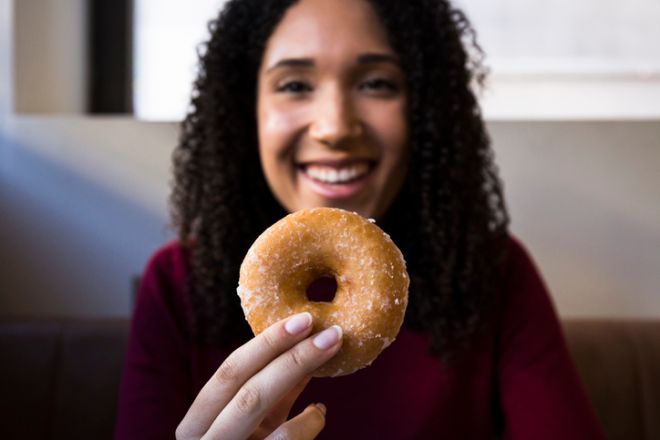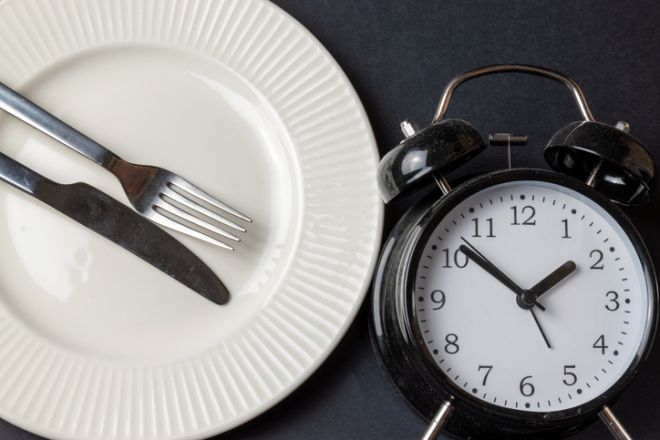4 Common Snacking Pitfalls And How To Avoid Them
Snack Smart, Stay Snatched: 4 Munchie Mistakes To Avoid This Summer
Share the post
Share this link via
Or copy link

Snacking often gets a bad rap, thanks to lingering diet culture myths. But when done right, snacks can play a key role in maintaining your energy, managing hunger, and supporting your overall well-being.
Here are four common snacking pitfalls and a few ways to indulge a bit smarter without ditching some of your favorite treats, according to health experts Vincci Tsui and Christine Van Eck.
RELATED CONTENT: 10 Surprising Ways To Stop Emotional Eating
1. Overeating that leads to guilt

A 2020 Food & Health Survey by the International Food Information Council revealed that snacking is a regular habit for many Americans. About 1 in 4 reported snacking multiple times a day, while one-third said they snacked at least once daily. The most common reasons? Hunger, thirst, cravings for something sweet or salty, and the convenience of snack foods.
Love MadameNoire? Get more! Join the MadameNoire Newsletter
We care about your data. See our privacy policy.
While enjoying the occasional treat is perfectly fine, challenges can arise when portion control becomes difficult. According to the Harvard T.H. Chan School of Public Health, snacks can contribute at least 10% of daily calorie intake, with most people averaging about two snacks a day, enough to impact weight if not approached mindfully.
Unfortunately, for those on a weight loss journey, snacking can sometimes trigger guilt. But that mindset may be doing more harm than good. Tsui, a Canada-based intuitive eating counselor, told SELF that guilt has no place in your snack routine. She stressed that snacking—when done with intention—can be a vital part of a balanced, healthy diet.
“I literally own a shirt that says ‘snacks are very important to me,’” Tsui explained to the outlet in an interview published June 6. “It’s very normal for us to feel hungry between meals.”
If you’re haunted by the idea of “good” vs. “bad” foods? You’re not alone. Many people feel shame when reaching for a cookie instead of carrot sticks. The truth is that all foods can have a place in a balanced diet. Whether it’s a brownie or a banana, food doesn’t define your worth. Guilt shouldn’t be a part of your snack break.
When you allow yourself to enjoy your choices without judgment, you create a more positive and sustainable relationship with food.
2. Skipping snacks entirely

Many people avoid snacks, thinking they’re unnecessary or indulgent. Registered dietitian Christine Van Eck told SELF that this mindset is often rooted in harmful diet culture messaging that glorifies rigid eating schedules. Notably, in the Harvard study, 40% of respondents said they at least occasionally replaced meals with snacking (lunch being the meal most often replaced), and 25% sometimes skipped meals entirely.
In reality, your hunger cues don’t always align with the “three meals a day” rule. Maybe lunch was too light, your day was nonstop, or you’re simply hungry again—any reason is valid. Snacks help fill these natural gaps and keep your energy levels and blood sugar steady. Not eating when you’re hungry can backfire, leading to irritability, fatigue, and overeating later.
So, bottom line, don’t be afraid to indulge in a treat before lunch or dinner. If you are going to snack, try to opt for something nutrient-dense like plain yogurt, nuts, seeds, or berries, which will support your health long-term.
3. Avoiding nighttime snacks

There’s a common myth that eating after 7 p.m. or 8 p.m. is unhealthy, but that’s not backed by science. Your body still uses food for energy during sleep to fuel essential functions like brain activity and cell repair, says Tsui.
If there’s a long gap between dinner and bedtime, it’s perfectly reasonable to be hungry again. Listening to that hunger and having a small bite to eat can help you sleep better and prevent you from waking up ravenous.
4. Ignoring your cravings

Craving chips but reaching for an apple instead? You might find yourself unsatisfied and still thinking about those chips. Van Eck explained that trying to “override” cravings with a so-called healthier option doesn’t always work. If a snack doesn’t meet your emotional or sensory needs (sweet vs. salty, soft vs. crunchy), you may keep grazing without feeling satisfied.
It’s more effective to honor your cravings with mindfulness and moderation. A few chips might do the trick better than a handful of “healthier” swaps. Snacks aren’t the enemy. Strategic, satisfying snacking can support your energy levels, mood, and even your relationship with food. By avoiding these common mistakes and tuning into your body’s real needs, you’ll snack smarter, not less.
RELATED CONTENT: Lunchables And Popular Snack Kit Brands Found To Contain Harmful Levels Of Lead, Heavy Metals And Sodium
-

Meet Dominique Fils-Aimé, The Haitian-Canadian Star Redefining Jazz For A New Generation: ‘This is My Vision' [Exclusive]
-

Cooking With Purpose — How Brittney Williams Honors Her Caribbean Roots Through Food
-

9 Famous Lesbian Women Who Were Married To Men
-

Bucket Baddies With Big Energy — The 30 Hottest NBA Players In The Game Right Now








